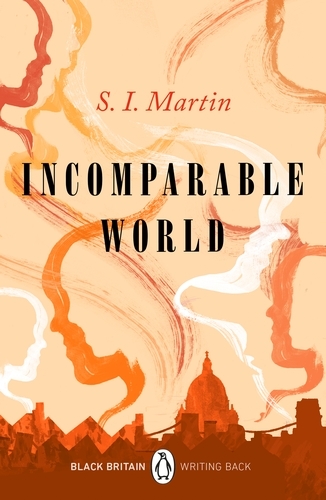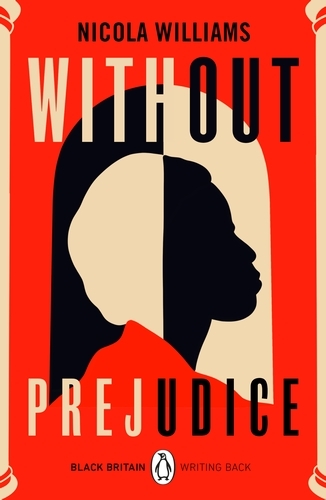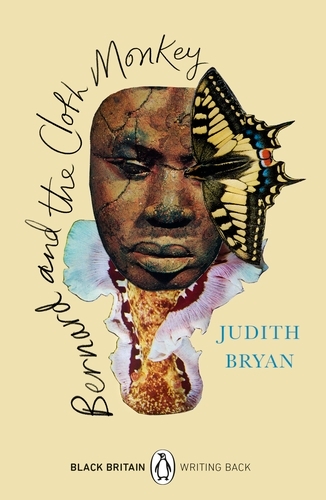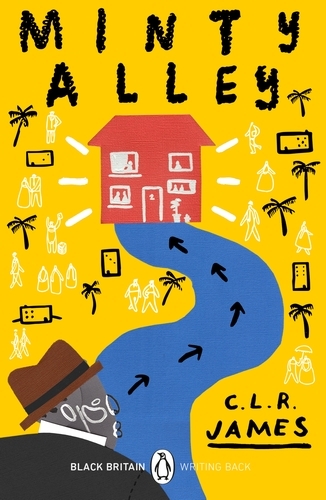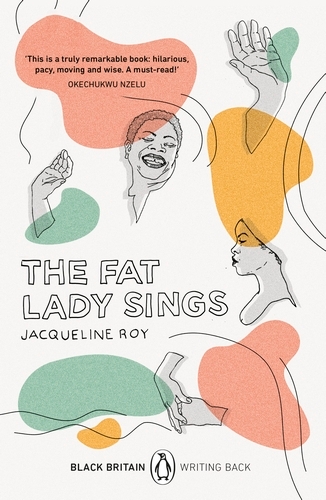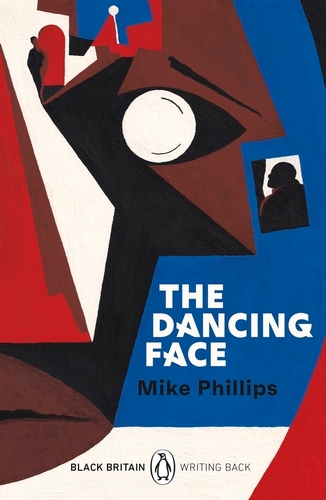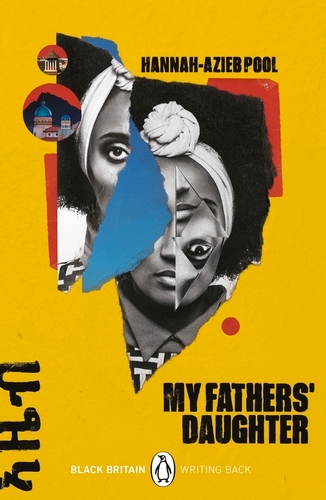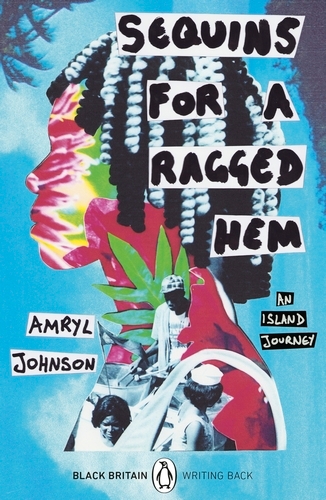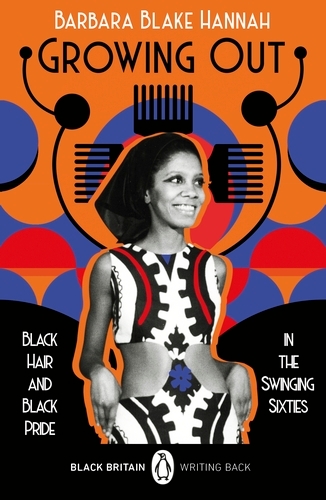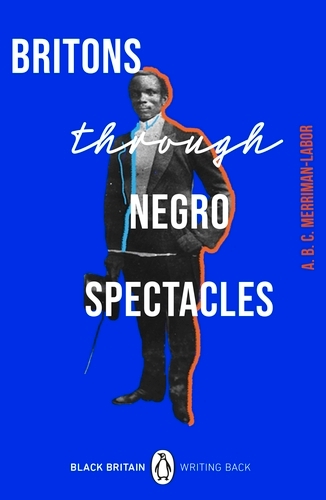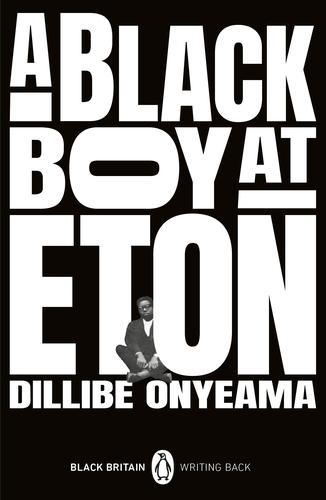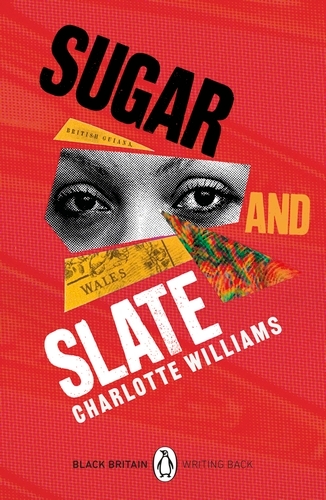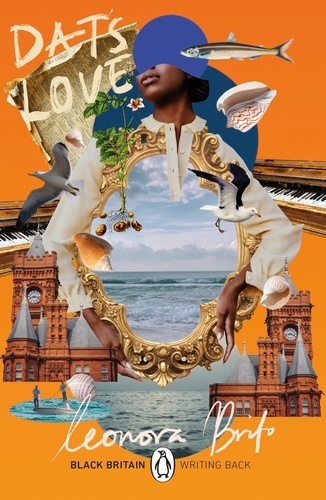Black Britain: Writing Back
13 books in this series
#1 - Incomparable World
In the years just after the American revolution, London was the unlikely refuge for thousands of black Americans who fought for liberty on the side of the British.
Buckram, Georgie and William have earned their freedom and escaped their American oppressors, but on the streets of London, poverty awaits with equal cruelty.
Ruthless, chaotic and endlessly evolving, London forces them into a life of crime, and a life on the margins. Their only hope for a better future is to concoct a scheme so daring, it will be a miracle if it pays off.
Pulsating with energy and vivid detail, Incomparable World boldly uncovers a long-buried narrative of black Britain.
Buckram, Georgie and William have earned their freedom and escaped their American oppressors, but on the streets of London, poverty awaits with equal cruelty.
Ruthless, chaotic and endlessly evolving, London forces them into a life of crime, and a life on the margins. Their only hope for a better future is to concoct a scheme so daring, it will be a miracle if it pays off.
Pulsating with energy and vivid detail, Incomparable World boldly uncovers a long-buried narrative of black Britain.
#2 - Without Prejudice
Lee Mitchell is a thirty-year-old barrister from a working-class Caribbean background: in the cut-throat environment of the courtroom, everything is stacked against her.
After she takes on the high-profile case of notorious millionaire playboy Clive Omartian - arrested along with his father and stepbrother for eye-wateringly exorbitant fraud - the line between her personal and professional life becomes dangerously blurred.
Spiralling further into Clive's trail of debauchery and corruption, she finds herself in alarmingly deep waters.
Can she survive her case, let alone win it?
After she takes on the high-profile case of notorious millionaire playboy Clive Omartian - arrested along with his father and stepbrother for eye-wateringly exorbitant fraud - the line between her personal and professional life becomes dangerously blurred.
Spiralling further into Clive's trail of debauchery and corruption, she finds herself in alarmingly deep waters.
Can she survive her case, let alone win it?
#3 - Bernard and the Cloth Monkey
When Anita finally returns to London after a long absence, everything has changed.
Her father is dead, her mother has disappeared, and she and her sister Beth are alone together for the first time in years.
They share a house. They share a family. They share a past.
Tentatively, they reach out to one another for connection, but the house echoes with words unspoken. Can they confront the pain of the past together?
Dazzling and heart-breaking, Bernard and the Cloth Monkey is a shattering portrait of family, a rebellion against silence and a testament to the human capacity for survival.
Her father is dead, her mother has disappeared, and she and her sister Beth are alone together for the first time in years.
They share a house. They share a family. They share a past.
Tentatively, they reach out to one another for connection, but the house echoes with words unspoken. Can they confront the pain of the past together?
Dazzling and heart-breaking, Bernard and the Cloth Monkey is a shattering portrait of family, a rebellion against silence and a testament to the human capacity for survival.
#4 - Minty Alley
It is the 1920s in the Trinidadian capital, and Haynes' world has been upended. His mother has passed away, and his carefully mapped-out future of gleaming opportunity has disappeared with her.
Unable to afford his former life, he finds himself moving into Minty Alley - a bustling barrack yard teeming with life and a spectacular cast of characters. In this sliver of West Indian working-class society, outrageous love affairs and passionate arguments are a daily fixture, and Haynes begins to slip from curious observer to the heart of the action.
Minty Alley is a gloriously observed portrayal of class, community and the ways in which we are all inherently connected. An undisputed modern classic, this is an exceptional story told by one of the twentieth century's greatest Caribbean thinkers.
Unable to afford his former life, he finds himself moving into Minty Alley - a bustling barrack yard teeming with life and a spectacular cast of characters. In this sliver of West Indian working-class society, outrageous love affairs and passionate arguments are a daily fixture, and Haynes begins to slip from curious observer to the heart of the action.
Minty Alley is a gloriously observed portrayal of class, community and the ways in which we are all inherently connected. An undisputed modern classic, this is an exceptional story told by one of the twentieth century's greatest Caribbean thinkers.
#5 - The Fat Lady Sings
It is the 1990s, and Gloria is living in a London psychiatric ward. She is unapologetically loud, audacious and eternally on the brink of bursting into song. After several months of uninterrupted routine, she is joined by another young black woman - Merle - who is full of silences and fear.
Unable to confide in their doctors, they agree to journal their pasts. Whispered into tape recorders and scrawled ferociously at night, the remarkable stories of their lives are revealed.
In this tender, deeply-moving depiction of mental health, Roy creates a striking portrait of two women finding strength in their shared vulnerability, as they navigate a system that fails to protect them. Life-affirming and fearlessly hopeful, this is an unforgettable story.
Unable to confide in their doctors, they agree to journal their pasts. Whispered into tape recorders and scrawled ferociously at night, the remarkable stories of their lives are revealed.
In this tender, deeply-moving depiction of mental health, Roy creates a striking portrait of two women finding strength in their shared vulnerability, as they navigate a system that fails to protect them. Life-affirming and fearlessly hopeful, this is an unforgettable story.
#6 - The Dancing Face
University lecturer Gus knows that stealing the priceless Benin mask, The Dancing Face, from a museum at the heart of the British establishment will gain an avalanche of attention.
Which is exactly what he wants.
But such a risky theft will also inevitably capture the attention of characters with more money, more power, and fewer morals.
Naively entangling his loved ones in his increasingly dangerous pursuit of righteous reparation, is Gus prepared for what it will cost him?
Which is exactly what he wants.
But such a risky theft will also inevitably capture the attention of characters with more money, more power, and fewer morals.
Naively entangling his loved ones in his increasingly dangerous pursuit of righteous reparation, is Gus prepared for what it will cost him?
#7 - My Fathers' Daughter
In 1974 Hannah Azieb-Pool was adopted from an orphanage in Eritrea and brought to England by her white adoptive father. She grew up unable to imagine what it must be like to look into the eyes of a blood relative until one day a letter arrived from a brother she never knew she had. Not knowing what to do with the letter, Hannah hid it away. But she was unable to forget it, and ten years later she finally decided to track down her surviving Eritrean family and embarked upon a journey that would take her far from the comfort zone of her metropolitan lifestye to confront the poverty and oppression of a life that could so easily have been her own.
#8 - Sequins for a Ragged Hem
Sequins for a Ragged Hem narrates Johnson's return tour to Trinidad as a spiritual homecoming made problematic, among other reasons, by the fact that the house where she was born had been demolished.
Amryl Johnson came to England from Trinidad when she was eleven. In 1983 she set off for a six month journey in the Caribbean. From the moment she steps off the plane into 'carnival fever', we are caught up in the excitement of her journey: her reunion with her mother, the exhilaration of dancing all night to calypso on the streets of Port-of-Spain . . . But she cannot escape, nor wants to, from the inheritance of colonialism.
Her time in the Caribbean is also a journey of the self. The quest for memory is as powerful as the desire to escape. As her trip draws to a close, she describes with courage and eloquence her attempts to reunite the selves that have been separated by different cultures.
Amryl Johnson came to England from Trinidad when she was eleven. In 1983 she set off for a six month journey in the Caribbean. From the moment she steps off the plane into 'carnival fever', we are caught up in the excitement of her journey: her reunion with her mother, the exhilaration of dancing all night to calypso on the streets of Port-of-Spain . . . But she cannot escape, nor wants to, from the inheritance of colonialism.
Her time in the Caribbean is also a journey of the self. The quest for memory is as powerful as the desire to escape. As her trip draws to a close, she describes with courage and eloquence her attempts to reunite the selves that have been separated by different cultures.
#9 - Growing Out
Travelling over from Jamaica as a teenager, Barbara's journey is remarkable. She finds her footing in TV, and blossoms. Covering incredible celebrity stories, travelling around the world and rubbing shoulders with the likes of Germaine Greer and Michael Caine - her life sparkles. But with the responsibility of being the first black woman reporting on TV comes an enormous amount of pressure, and a flood of hateful letters and complaints from viewers that eventually costs her the job.
In the aftermath of this fallout, she goes through a period of self-discovery that allows her to carve out a new space for herself first in the UK and then back home in Jamaica - one that allows her to embrace and celebrate her black identity, rather than feeling suffocated in her attempts to emulate whiteness and conform to the culture around her.
Growing Out provides a dazzling, revelatory depiction of race and womanhood in the 1960s from an entirely unique perspective.
In the aftermath of this fallout, she goes through a period of self-discovery that allows her to carve out a new space for herself first in the UK and then back home in Jamaica - one that allows her to embrace and celebrate her black identity, rather than feeling suffocated in her attempts to emulate whiteness and conform to the culture around her.
Growing Out provides a dazzling, revelatory depiction of race and womanhood in the 1960s from an entirely unique perspective.
#10 - Britons Through Negro Spectacles
In Britons Through Negro Spectacles Merriman-Labor takes us on a joyous, intoxicating tour of London at the turn of the 20th century. Slyly subverting the colonial gaze usually placed on Africa, he introduces us to the citizens, culture and customs of Britain with a mischievous glint in his eye. This incredible work of social commentary feels a century ahead of its time, and provides unique insights into the intersection between empire, race and community at this important moment in history.
#11 - A Black Boy at Eton
Dillibe was the second black boy to study at Eton - joining in 1965 - and the first to complete his education there. Written at just 21, this is a deeply personal, revelatory account of the racism he endured during his time as a student at the prestigious institution. He tells in vivid detail of his own background as the son of a Nigerian judge at the International Court of Justice at The Hague, of his arrival at the school, of the curriculum, of his reception by other boys (and masters), and of his punishments. He tells, too, of the cruel racial prejudice and his reactions to it, and of the alienation and stereotyping he faced at such a young age. A Black Boy at Eton is a searing, ground-breaking book displaying the deep psychological effects of colonialism and racism.
#12 - Sugar and Slate
The daughter of a white Welsh-speaking mother and a Black father from Guyana, Charlotte Williams' childhood world was one of mixed messages, dominated by the feeling that 'somehow to be half Welsh and half Afro-Caribbean was always to be half of something but never quite anything whole at all'.
Sugar and Slate tells the fascinating story of her journey of self-discovery, toing and froing between the small north Wales town where she grew up, Africa and the Caribbean. Blending memoir with historical research, Sugar and Slate delves deep into Black Welsh history, revealing the nation as home to one of the first interracial marriages in Britain in 1768, and a site of Britain's first major race riots in 1919.
Powerful, lyrical and intimate, Williams' experience casts light on Wales and Welshness, illuminating what it is to be racially marginalized within a community, which is itself marginalized within Britain, and offering a unique insight into the complex Black history of Wales.
Sugar and Slate tells the fascinating story of her journey of self-discovery, toing and froing between the small north Wales town where she grew up, Africa and the Caribbean. Blending memoir with historical research, Sugar and Slate delves deep into Black Welsh history, revealing the nation as home to one of the first interracial marriages in Britain in 1768, and a site of Britain's first major race riots in 1919.
Powerful, lyrical and intimate, Williams' experience casts light on Wales and Welshness, illuminating what it is to be racially marginalized within a community, which is itself marginalized within Britain, and offering a unique insight into the complex Black history of Wales.
#13 - Dat's Love
Leonora Brito was a writer of exceptional stories. In Dat's Love, she soaks up the sights, sounds and colours of Cardiff to boldly explore race and history.
With each electric story, Brito introduces a unique cast of characters, vibrantly elevating their everyday lives. From 59-year-old Dorothy taking up nude modelling to black aristocrat Dido Elizabeth Belle, from the assassination of JFK to what's going down at the Blue Bayou, Brito blends the surreal and the mundane to redress history and immerse the reader in a vibrantly painted world.
Containing an unusual exactness and sense of place, Brito's stories are unique in Welsh fiction in presenting an insider's perspective on a black Welsh history only alluded to by other writers. Full of wry humour and startling originality, this collection features some of Brito's most acclaimed work.
With each electric story, Brito introduces a unique cast of characters, vibrantly elevating their everyday lives. From 59-year-old Dorothy taking up nude modelling to black aristocrat Dido Elizabeth Belle, from the assassination of JFK to what's going down at the Blue Bayou, Brito blends the surreal and the mundane to redress history and immerse the reader in a vibrantly painted world.
Containing an unusual exactness and sense of place, Brito's stories are unique in Welsh fiction in presenting an insider's perspective on a black Welsh history only alluded to by other writers. Full of wry humour and startling originality, this collection features some of Brito's most acclaimed work.
